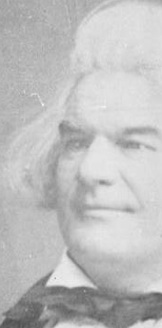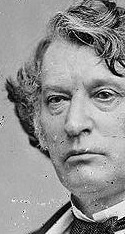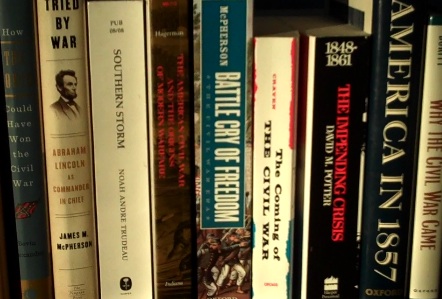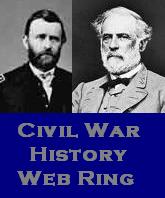the politicians
Leadership is an area of academic and practical interest. Because presidents are as “senior” as it gets in political leadership, they deserve a page for collection and cataloging of information as well as commentary. Other politicians relevant to the period will also be included.
 Atchison, David Rice (Missouri)
Atchison, David Rice (Missouri)
- Senator, Democrat – December 04, 1844 – March 03, 1855
- November, 1855 – Organized a force of “Border Ruffians” from Missouri who mobilized in force outside the town of Lawrence, Kansas in what became known as the Wakarusa War.
 Banks, Nathaniel Prentice
Banks, Nathaniel Prentice
- 25th Speaker of the House of Representatives, elected by Know Nothings and Republicans
- In office from February 2, 1856 – March 4, 1857
- Trusted by both North Americans and Republicans (Holt, 177)
Bell, John (Tennessee)
- Senator, Southern Whig
- The only Southern Whig to vote against the Kansas-Nebraska Act.
Bigler, William (Pennsylvania)
- Democratic Governor of Pennsylvania
 Brooks, Preston (South Carolina)
Brooks, Preston (South Carolina)
- August 5, 1819 – January 27, 1857
- Democratic congressman
- Famous for beating Senator Charles Sumner with a cane on the floor the United States Senate after Sumner’s speech of May 19 & 20, 1856 “The Crime against Kansas” in which he criticizes a relative of Brooks, Andrew P. Butler (see below).
Brownlow, Parson
- Tennessee Know Nothing
Buchanan, James (Pennsylvania)
- Nominated as the Democratic candidate for president, May ?
 Butler, Andrew Pickens (South Carolina)
Butler, Andrew Pickens (South Carolina)
- Senator
- Insulted in Charles Sumner’s May 19 – 20, 1856 speech titled “The Crime against Kansas” leading to incident where by his cousin, Representative Preston S. Brooks of South Carolina (see above), accosted Sumner at his desk on the Senate floor with a cane – all in the name of family honor.
Calhoun, John C.
- South Carolina Senator
Cameron, Simon (Pennsylvania)
- Leveraged the Know Nothing movement to rise in power. Was Democrat.
Chase, Salmon P.
- Ohio Republican
- Signed the January 1854 “Appeal of the Independent Democrats in Congress to the People of the United States” submitted by a small group of Free-Soilers in Congress.
Cobb, Howell
 Crittenden, John Jordan, Kentucky (1786 – 1863)
Crittenden, John Jordan, Kentucky (1786 – 1863)
- Senate Years of Service: 1817-1819; 1835-1841; 1842-1848; 1855-1861
- Party: Democratic Republican; Whig; American (Know-Nothing); Unionist
Cushing, Caleb (Massachusetts)
- Attorney General for Franklin Pierce
- Former Whig
- “Staunch foe of those Democrats who favored coalition with the Free-Soilers.” (Michael F. Holt, The Political Crisis of the 1850’s )
Davis, Jefferson
- Secretary of War under Franklin Pierce
- President of the Confederacy
Dickinson, Daniel S.
- Senator, New York
- Leader of the “Hards” or “Hardshells” political group (faction of the Democrats), 1853.
Dix, John A.
- Leader of the Barnburner Party group, 1853
Dixon, Archibald (Kentucky)
- Whig
- Offered amendment repealing the Missouri Compromise ban (William H. Seward would say later that he put Dixon up to this.) (Michael F. Holt, The Political Crisis of the 1850’s , 146)
Douglas, Stephen A. (Illinois)
- Senator from Illinois
- Chairman of the Senate Committee on Territories
- A devout Unionist in favor of expansion.
Fillmore, Millard (New York)
- Signer of The Fugitive Slave Act
- Silver Gray
- Leveraged the Know Nothing movement.
Fremont, John C.
- Republican nominee for president, 1856
Gardner, Henry
- Know Nothing leader from Massachusetts
Hale, John P.
- Took advantage of the Know Nothing movement to get reelected to the Senate.
Hayes, Rutherford B.
Lane, James
- Kansas Free-state man who raised troops to menace Territorial officials with military force.
 Lincoln, Abraham
Lincoln, Abraham
- Born, Feb. 12, 1809, in Hardin County, Kentucky
- Captain, Black Hawk War
- Member, Illinois Legislature
- President of the United States, 1861 – 1865
- January 1, 1863, issued the Emancipation Proclamation that declared forever free those slaves within the Confederacy
- Won reelection to Presidency, 1864
- Good Friday, April 14, 1865, assassinated at Ford’s Theatre in Washington by John Wilkes Booth
Lowe, Enoch Louis (1820-1892)
Democrat
32nd Governor of Maryland (1850-1853)
“Born at the Hermitage, a thousand-acre estate on the Monocacy three miles from Frederick” Maryland. (Joseph L. Harsh, Take at the Flood, (Kent, Ohio: The Kent State University Press, 1999), 77.
Exiled himself to Richmond after siding with the Confederacy in 1861. (Ibid)
Marcy, William L.
- Secretary of State under Franklin Pierce
- Leader of the “Softs” or “Softshell” political faction, 1863
McLean, John (Justice)
- Perpetual presidential aspirant (Holt, 168)
- Know Nothing
Pierce, Franklin
- 14th President of the United States, 1853 – 1857
- Fueled the debate and violence in Kansas and gave the Republicans reason to use Kansas to their partisan advantage by
- denouncing the Topeka government as revolutionary
- officially recognizing the proslavery legislature as the only legal authority in the territory
- pledging the use of federal troops to support the proslavery government (Holt, 194)
- “The Republican Seward made the case explicit in a Senate speech when he likened pierce to King George III, a despotic tyrant who oppressed Kansans just as the British monarch had subjugated American colonists.” (Holt, 194)
 Reeder, Andrew
Reeder, Andrew
- First governor of the Kansas territory
- Let stand the Kansas Territorial election results of March 30, 1855 leading to anarchy in Kansas
- Dismissed from the territorial government
- Joined the free-state group in Kansas
 Robinson, Charles Lawrence
Robinson, Charles Lawrence
- Agent of the Emigrant Aid Society in Kansas
- “Govenor” of the Topeka movement
- “Sent to Boston an urgent plea for twoo hundred Sharps rifles and two field guns.” (Potter, 206)
Seward, William H. (New York)
- Free-soil Whig
Seymour, Horatio
- Democratic Governor of New York. 18th Governor in office January 1, 1853 – December 31, 1854
- Member of the Softshells, a faction of the Democratic Party largely in New York
- Supporter of Franklin Pierce
Shannon, Wilson
- Second governor of the territory of Kansas
Stephens, Alexander H. (Georgia)
- Southern Whig in the House of Representatives
- Played a major role in expediting the Kansas Nebraska Act in the House (Michael F. Holt, The Political Crisis of the 1850’s , 148)
 Sumner, Charles (Massachusetts)
Sumner, Charles (Massachusetts)
- Cropped photo of digital available from the Library of Congress Prints and Photographs division under the digital ID cwpbh.00477
- Senator, Republican
- Signed the January 1854 “Appeal of the Independent Democrats in Congress to the People of the United States” submitted by a small group of Free-Soilers in Congress.
- May 19 & 20, 1856 delivers a speech in Washington titled “The Crime against Kansas.”
 Thayer, Eli
Thayer, Eli
- Chartered the Emigrant Aid Company with goal of aiding free-state settlers who were willing to move to Kansas
- Member of the United States House of Representatives from 1857 to 1861
Ullmann, Daniel (New York)
- Silver Gray
- Leveraged to Know Nothing movement to achieve his own gains.
Weed (New York)
- Republican leader
 Welles, Gideon
Welles, Gideon
- Connecticut
- Arch-foe of the Know Nothings (Holt, 165)














































